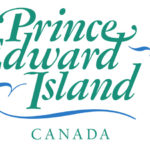(Ed note: Infographic is below, text of release info beneath)
Premier Iain Rankin and Dr. Robert Strang, Nova Scotia’s chief medical officer of
health, announced today, May 28, that the province will reopen gradually under a five phase plan.
“Our phased plan will allow us to safely enjoy summer with public health measures in
place while we work at getting most of our population fully vaccinated,” said Premier
Rankin. “Then we should be able to further ease restrictions in the fall and ease in to a
new normal of living with COVID-19.”
Each phase is based on COVID-19 activity, public health and testing capacity,
hospitalizations and vaccination rates. Phases are expected to last between two and
four weeks as long as certain criteria are met in these areas.
Travel will no longer be restricted within most of Nova Scotia, although people are
asked to avoid non-essential travel into and out of Cape Breton Regional Municipality
and into and out of areas of Halifax Regional Municipality, Hubbards, Milford, Lantz,
Elmsdale, Enfield, Mount Uniacke, South Uniacke, Ecum Secum and Trafalgar. A final
decision will be made about travel for those areas of the province early next week,
based on COVID-19 activity.
Starting Wednesday, June 2, key changes in phase one include most businesses
opening further, outdoor visits at long-term care facilities, and outdoor gathering limits increasing. In subsequent phases, businesses will gradually increase capacity to the maximum capacity possible with public health measures such as physical distancing, gathering limits will further increase, events and activities will be allowed with increasing numbers of attendees, and border restrictions will start easing.
“Our epidemiology is going in the right direction and we’re at more than 50 per cent of
Nova Scotians having one or more doses of vaccine, so we can start to take our first
cautious steps toward reopening for the summer,” said Dr. Strang. “In deciding exactly when to move to each new phase, we will consider case numbers, hospitalizations and
use of health system resources as well as the percentage of Nova Scotians who’ve
been vaccinated. The more people who get vaccinated, the more we can reopen our
province.
Restrictions are easing effective 8 a.m., June 2 as phase one gets fully underway:
— Nova Scotians can gather outdoors with a consistent social group of up to 10 people
without physical distance
— the limit for indoor gatherings remains the people you live with; two households with one or two people each can still join together but they must be the same two
households all the time
— faith gatherings can be held outdoors with a limit of 10 plus officiants when hosted by a recognized organization; drive-in services are allowed with no limit on numbers
— wedding and funeral ceremonies remain limited to five plus officiants indoors but can increase to 10 plus officiants outdoors; there can be no receptions or visitations
— restaurants and licensed establishments can open patios at their maximum capacity
with physical distance between tables, a limit of 10 people per table and masks when
people are not eating or drinking; they must stop service by 11 p.m. and close by
midnight
— all retail stores can operate at 25 per cent capacity, ensuring physical distance
— personal services such as hair salons, barber shops and spas can operate by
appointment only following their sector plan but cannot offer services that require
removing the customer’s mask
— fitness and recreation facilities can offer outdoor activities with a limit of 10 people
with physical distancing, or multiple groups of 10 that are distanced on their own
property, as well as one-on-one personal training indoors
— outdoor pools can open with a limit of 10 people at a time with physical distancing
— organized sports practices can have 10 people outdoors without physical distancing,
or multiple groups of 10 that are distanced
— professional arts and culture organizations can hold rehearsals with 15 people
indoors and amateur rehearsals can have 10 people outdoors without physical
distancing
— drive-in theatres can operate with no limit on numbers
— campgrounds can offer season and short-term camping following their sector plan
with distance between campsites
— residents of long-term care facilities can have visitors outdoors; visitors must wear
masks but no physical distance is required if the resident is fully vaccinated
— recreation activities and services such as hairstyling can resume for fully vaccinated
residents of long-term care facilities
— fully vaccinated residents of homes licensed by the Department of Health and
Wellness under the Homes for Special Care Act can resume access to their
communities for work or school
— fully vaccinated residents of homes licensed by the Department of Community
Service under the Homes for Special Care Act can resume access to their communities
for work, therapy, recreation and family visits
— more people can get exceptions to enter Nova Scotia for end-of-life visits with
immediate family members
— students from within Canada can apply to enter the province for in-person or virtual
studies if they are enrolled in the summer semester
People who do not follow the public health measures can be fined. For example, the
fine is now $2,000 for each person at an illegal gathering.
To prepare for easing border restrictions through the summer and fall, a passenger
testing program at the Halifax Stanfield International Airport is planned. Other border
testing measures are being considered. More details will be released as they are
developed.
School Reopening Details
In-person classes will resume Wednesday, June 2, at all Nova Scotia public and private
schools outside of Halifax Regional Municipality (HRM) and Sydney.
Also on June 2, licensed child-care centres and family daycare homes across the
province can return to 100 per cent capacity
The reopening decisions are based on advice from public health and pediatricians at theIWK Health Centre. All public health measures as outlined in Nova Scotia’s Back to
School plan will remain in place.
At-home learning will continue for students in HRM and Sydney, but there will be some exceptions for students with highly complex needs. School officials will contact those families early next week with additional details about a June 2 start date. Public health, in consultation with the province, will continue to assess in-person classes for other HRM and Sydney students.
“We know that in-person schooling is best for children, and thanks to Nova Scotians
following the rules, we can safely reopen schools to many of our students,” said Premier Iain Rankin. “We want students in their classes with their peers, finishing the year strong.”
Families will receive more information from their schools or regional centres for
education/Conseil scolaire acadien provincial later today.
“I want to thank child-care staff, operators and families,” said Derek Mombourquette,
Minister of Education and Early Childhood Development. “The lockdown has been hard on everyone and the people in this sector have done a fantastic job of adapting to new public health guidance. They have succeeded in keeping centres open, supporting
those needing to work through the third wave. Now, with COVID numbers going down,
we can ease restrictions safely.”
Families whose circumstances mean they are not ready to access their child-care spac
may continue to keep their child home and have their space held until June 30 without
paying fees. Families are encouraged to talk to their providers regarding timing of reenrolling their child in licensed child care.
As of July 1, families must pay their fees or withdraw from child care.
The province will continue to support the child-care sector with emergency funding as
needed until June 30, including operational and staffing costs incurred as a result of a
delayed return by some families. The province will also continue to provide personal
protective equipment to centres.
Quick Facts:
— all school gyms province wide will remain closed to community use
— at schools that are open, school teams will be allowed to practice inside the school
but there will be no games
— current emergency funding to the child-care sector is estimated at $850,000 per week
— as of May 28, $4.8 million in emergency funding has been deposited into the bank
accounts of approximately 300 child-care centres and 14 family home child-care
agencies.
— last year, the province supported the child-care sector through a complete three month shutdown with $30 million in emergency funding; that was in addition to regular annual sector funding of $70 million
Source: Release #notw



